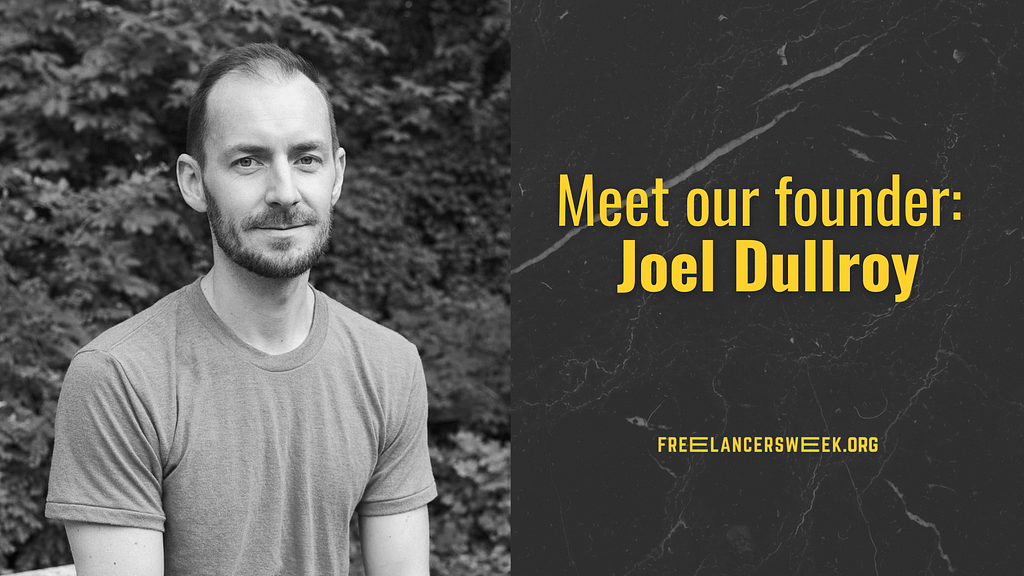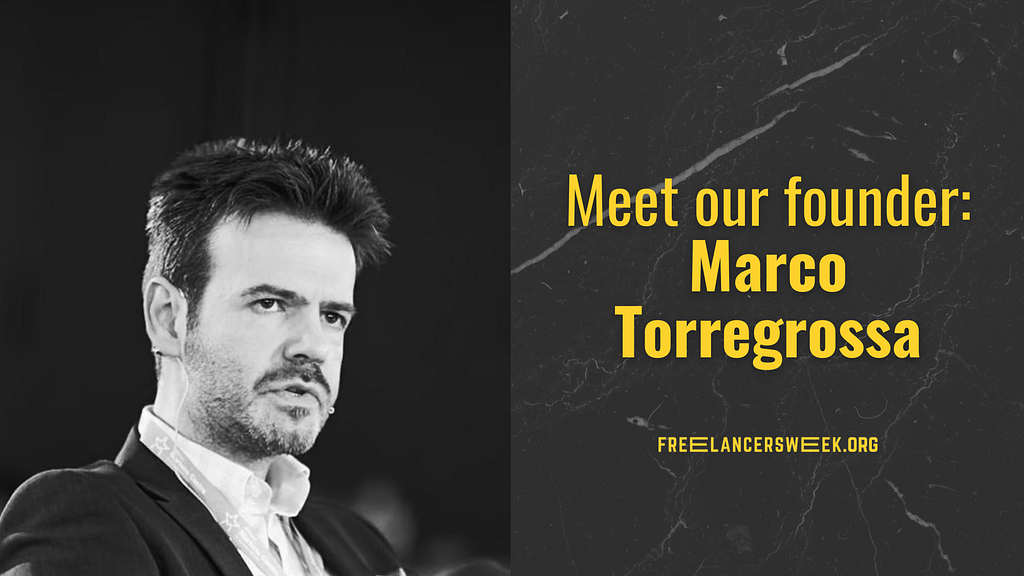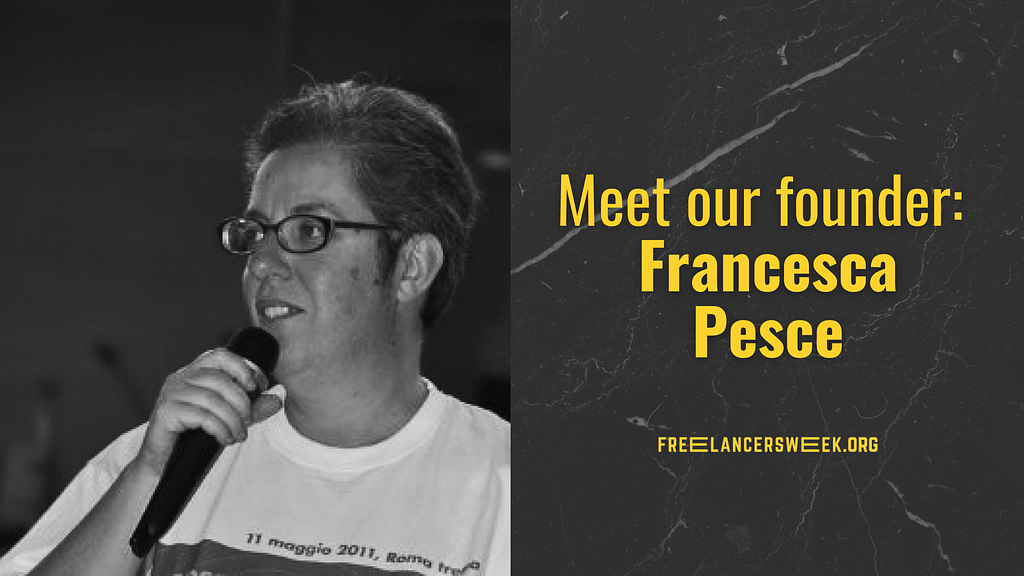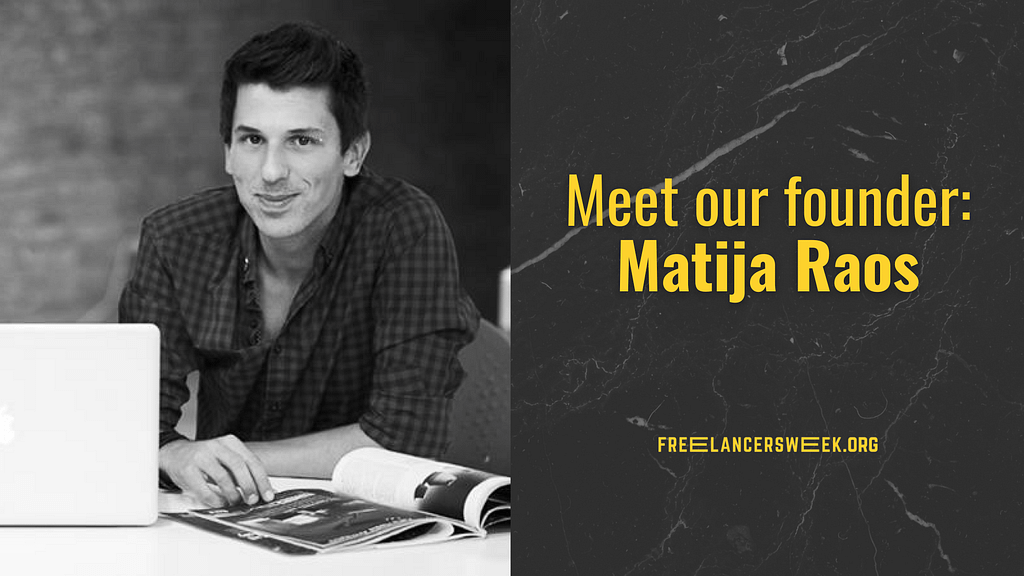Freelance Journalist and Reporter for Deutsche Welle
Joel Dullroy is a journalist from Australia with nearly 20 years’ worth of experience in the industry, most of which has been spent as a freelance journalist in Germany where he currently works and resides. His personal experience as a freelancer in Germany made Dullroy sensitive to the more subtle disadvantageous and ruthless marginalisationfreelancers and the self-employed have to deal with in regards to companies, government policies, and financial institutes, that other workers in the economy don’t.
“I came across many of the common problems that freelancers face, both the sort of personal financial problems and the bureaucratic problems which are different in each country. In Germany, the biggest problem is the affordability of health insurance, access to certain social security programs, and general support and recognition from banks and other institutions,” says Dullroy. “And so, through that, I got involved in helping set up the German Freelancers Association, which is called the VGSD which means the Association of Founders and Freelancers. We started as a small group that has now grown to several thousand members. For the first time, we were making freelancers’ voices heard on a national level and we’ve managed to build up resources so that we can get meetings with government ministers and make our case for why certain things needed to change in Germany.”
VGSD understood that these problems weren’t necessarily unique to Germany and so asked Dullroy to reach out to other national associations across Europe to open dialogue to share information and experience in order to help one another overcome these obstacles together. This outreach also helped result in the European Freelancer’s Week and a better understanding of the influence coworking spaces have on freelancers.
“I was asked by the VGSD to become the international representative and connect with other freelance groups around Europe. I got involved in, what was then called, EFIP (the European Forum for Independent Professionals) which we networked through to meet up with other freelance organizations around Europe and build some kind of European solidarity because we realized that there were a few things that needed to be resolved on a European level as well.
“The European Freelancers Week came about because we decided that it wasn’t enough for us just to have meetings on an organizational level, but that we needed to create a movement of freelancers across Europe who could connect with each other as well. And so, we decided to start the European Freelancers Week as a way of making freelancers feel connected and visible and providing an opportunity to come together, share common problems and find common solutions, and to share some ideas across borders. For the first time, we (several representatives from the different countries) got together and decided to start the European Freelancers Week and among them was Francesca Pesce from Italy and Matija Raos from Croatia (a former colleague of ours [who has] sadly passed away since then).
“We decided to start quite lean so we created an open calendar where anyone could post an event and join in the week. We encouraged coworking spaces to create events, actually their members, to use the opportunity to host an event related specifically to issues of freelancers’ working conditions. We realized that coworking spaces are critical to helping spread messages between freelancers and get them connected, and for coworking spaces to host events. Even if the event was just to discuss the things that trouble them and think of ways that they could solve them, whether they were bureaucratic problems or just practical problems about their daily jobs,” says Dullroy.
When asked what the biggest or most noticeable impact EFWeek had on freelancers, that he had noticed, Dullroy felt that instead of changing bureaucratic policies, that by joining together they have been able to find new and creative ways to achieve more positive, collective ends:
“Well in Germany, we have managed to build an organization that has been able to influence policy. We haven’t got everything that we want, but at least now the various ministers, that are responsible for things like employment and working conditions, are aware of our organization and we get invited now to meet with them and give our views, which is a huge support. We’re no longer invisible; we have a voice and we are making our case heard. Of course, the next step will be to get some real victories. One thing I have seen change across Europe is the expansion of organizations like SMART, the Freelancers Cooperative, which provides real practical business solutions for freelancers, beyond the political lobbying. They have solved a lot of the issues surrounding invoicing, billing, getting paid on time and getting affordable access to social insurance programs, which has been a big help. So, that’s been fantastic and they’ve been part of the Freelancers Week story as well: they’ve been the main supporter in the last few years. I think that’s really important: we need to both lobby governments and also build practical solutions using modern new organizational forms like cooperatives.
“So, on the European level: there are some things that can be changed in terms of European law but a lot of the issues that affect freelancers are decided at a national level. For example, the major European policy changes (that’s mostly because there aren’t many policies to change) that we have seen is just the general awareness that there is this distinct class of freelancers who do need to be considered; that there is a growing group of people who have very distinct needs from all other kinds of workers which wasn’t the case five years ago. Now, it’s part of the regular discussion whenever you hear things about work being discussed. The impact on freelancers and flexible workers is at least acknowledged, which is good.
“I’ve found that rather than wait, rather than try and change the bureaucracy which is a very long process, what’s been more effective is finding ways to use existing loopholes and use collective organization forms to try and achieve what we want without having to reform the bureaucracy. For example, using the form of the cooperative to join together and then give ourselves employment contracts, which is what we do with SMART. Ideally, it would be great if we could achieve the things we want directly, but with freelancers have found indirect ways of achieving similar goals for example by joining cooperatives, pooling our resources, giving ourselves employment contracts and thereby becoming employees in the eyes of the authorities yet still be able to do our own independent work.”
Dullroy is currently working as a reporter for DW, the German foreign news organization, and only partially working as a freelancer which is why he is not as actively involved in the Freelancers Week as he was before. Dullroy hopes that the EFWeek continues to bring people together and continues to push for effective policy changes in favour of freelancers, especially now in the face of the Covid-19 Virus pandemic:
“I’m very happy to see that within days in Germany (or at least within a week) of the crisis, the concerns of freelancers have already been realized by the authorities. We have to see concrete solutions, but the ministers went from talking about supporting businesses to also supporting freelancers. And that took about a week now. I believe several years ago that wouldn’t have been the case – freelancing would have just been forgotten. Now, freelancers are in the minds of policymakers, whether or not we get the best solutions is still debatable but at least we aren’t being entirely forgotten. We’re now on the agenda and it’s up to us to keep up the pressure and make sure that we get the results that we need.
“Personally, what I’d like to see is a European wide minimum basic income for everybody so that they can be a freelancer and pay their bills without fear of poverty and I think that is both financially possible and, now, necessary as we enter this new uncharted territory.”




